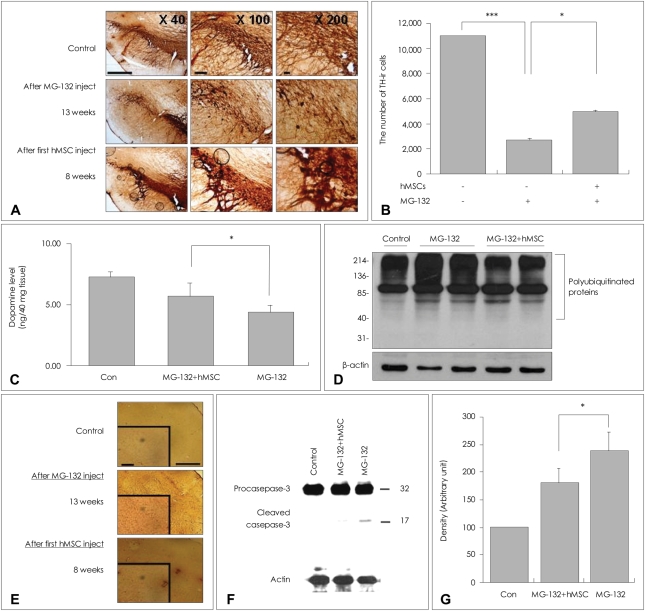Fig. 1.
Effects of cell therapy with human mesenchymal stem cells (hMSCs) on animals treated with MG-132. Immunohistochemical analysis showed that hMSC treatment dramatically reduced the decline in the number of TH-ir cells in the SN of MG-132-treated rats (A). Stereological analysis revealed that the number of TH-ir cells was significantly higher in the hMSC-treatment group than in the group treated with MG-132 alone (n=5; p<0.05, B). Dopamine levels in the striatum (as assessed by gas chromatography-mass spectrometry) were significantly lower in MG-132-treated rats than in controls (p<0.01); however, hMSC treatment significantly increased the dopamine level in the striatum of MG-132-treated rats (n=5; p<0.05, C). MG-132 treatment resulted in the accumulation of polyubiquitinated proteins and a markedly increase in OX-6 immunoreactivity; however, hMSC treatment markedly decreased the accumulation of polyubiquitinated proteins and OX-6 immunoreactivity in MG-132-treated rats (D and E). The level of the cleaved form of caspase-3 was significantly lower in rats treated with hMSCs (F) than in MG-132-treated rats (n=3, G). Scale bar: 100 µm. *p<0.05, **p<0.01. SN: substantia nigra, TH-ir: tyrosine-hydroxylase-immunoreactive.

